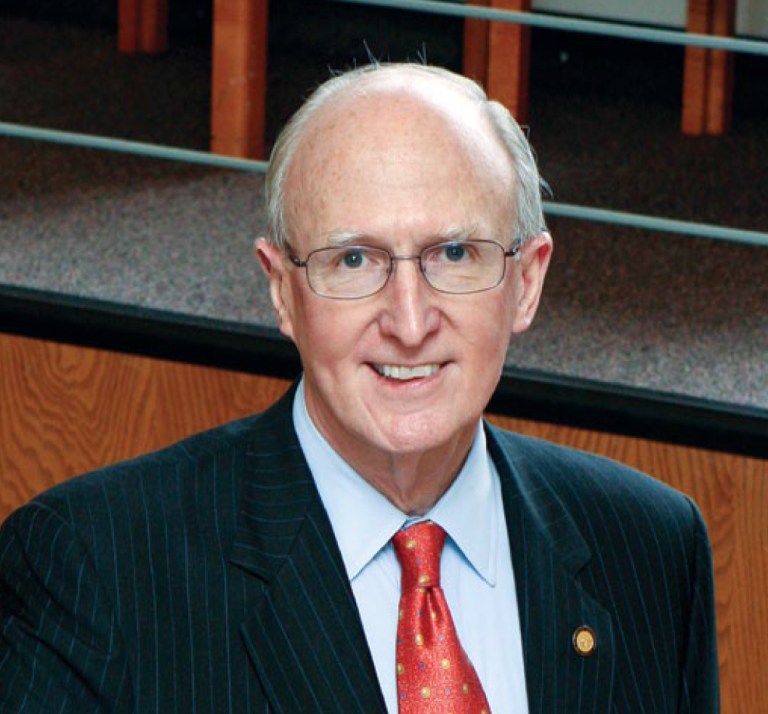
By Robert A. Scott
Congratulations for graduating from high school. Parents and teachers celebrate your academic attainments and for attaining goals they believe are important.
Achievements require initiative and resilience, curiosity and compassion, imagination, sometimes teamwork, always critical thinking and strong communication skills. Achievement requires us to wonder, to tolerate ambiguity, to take a chance, to risk failure in pursuit of a greater goal. A mentor once advised me, “Secure your footing before you extend your reach, but reach.”
This is a time, perhaps more than ever, that requires creative approaches to solving problems. Unlike many, I do not think of this as the “information age;” it is the “imagination age.” In fact, I think the two most important aspects of learning are imagination and history: how to imagine “what if?” or “what about?” and to understand what came before, because it is that on which we will build in approaching the future.
Imagination permits us to see patterns, to see where they diverge and where they converge. It requires us to listen, to understand, to tolerate the silence and to comprehend before we respond.
One of my favorite quotes is from the author James Baldwin, who commented on the “questions hidden by answers.” Often, when someone proposes a solution, I will say, “That’s an answer, what’s the question?” Clarify the question. Remember the wise one who asked his child each day not, “What did you learn today?” but “What questions did you ask today?”
In achieving as you have, you have learned how to use your time and your talents. To date, you have probably thought of achievements as for individual gain, but increasingly you will be called upon to think of the common good, of others beyond yourself.
Most graduates are going to college. I am sure that you and your parents have had conversations and expressed concerns about costs and the possibilities of a job upon commencement, and how these two concerns will affect what you may study.
I believe that students are more likely to succeed in their studies if they pursue something for which they have a passion. This means that if the passion is for dance, or art, or anthropology instead of pre-medicine or accounting, students are more likely to be motivated, serious, inquisitive and successful in their studies. When I say this to parents, it captures their attention, and I quickly make the next point.
Students should seek opportunities for internships in business, government, or non-profit organizations to learn and enhance job-readiness skills or graduate school preparation.
This combination of pursuing one’s passion as well as internships in the “real world,” supervised placements in combination with a field of study, helps prepare students for the first job, the start of a career or series of careers and graduate or professional school.
Studying in another culture is an important part of your next steps. After all, your college experience should be as much about developing your character and becoming an informed citizen as it is about learning about commerce and launching a career. You need to know about compassion and community as well as competition if you are to be fulfilled as a human.
The third point I make is about the “fit” between the student and the college. You have probably asked yourself questions about where you will succeed, where you will feel both comfortable and challenged.
“Fit” includes cost and affordability because it makes little sense to graduate with excessive debt. Fit includes an active campus life for a student whose pillow may be at home and not in a residential hall, for extra-curricular life is important as a supplement to classroom learning. Life and work skills are developed in clubs, sports teams and student government organizations, and students should have the opportunity to participate no matter where they live.
Other signs of “fit” include the friendliness and degree of caring by other students, faculty, and staff; the condition of facilities and grounds and the record for safety; faculty priorities for teaching and advising; the availability of financial aid, internships, and work with faculty on their research; institutional values for energy efficiency; and civic engagement. Students should be challenged intellectually and in other ways, to be sure, to learn outside their “comfort zone,” but the environment should be nurturing and supportive as well as challenging.
You are set apart from others now and we celebrate you. Long Island needs you to foster its organic growth as a place of economic, cultural and civic vitality. The world needs you to keep growing, to build on the foundation you have begun. We need you to maintain your optimism and to explore your special gifts for the good of family, community, and humanity. You can do this through both basic acts such as volunteering and voting, and grander acts of commitment for bettering the lot of others.
You are to be the author of your life, not an actor in another’s script. Achievement carries with it responsibility, but also the joy and challenge of continuing to grow, develop, and live life to its fullest. You have secured your footing; now extend your reach.
Robert A. Scott, President Emeritus, Adelphi University and Author, How University Boards Work, Johns Hopkins Press, 2018; Eric Hoffer Awardee, 2019






